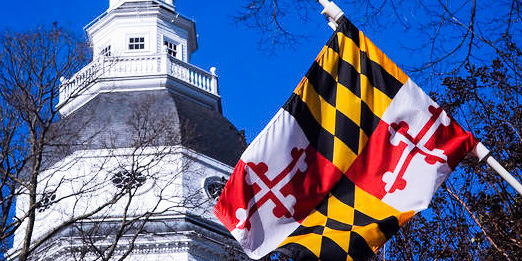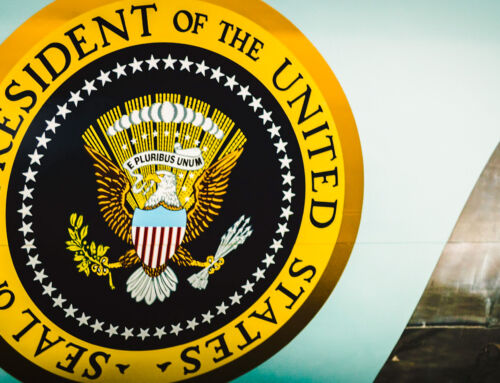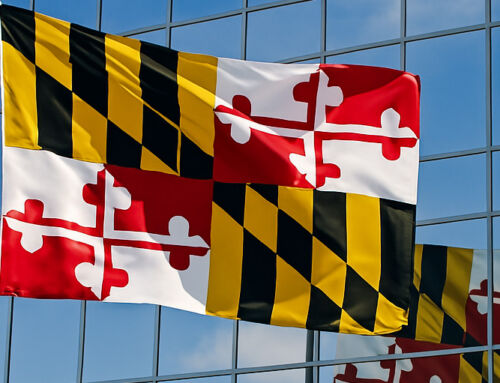View by Topic
Recent Articles
-
Migratory Bird Treaty Act Does Not Prohibit Incidental Take – AgainSaturday, April 19th, 2025
-
President Trump’s Bold Step to Rein in State Overreach in Climate ChangeSaturday, April 12th, 2025
-
Mandatory GHG Disclosures in Maryland Real Estate ContractsSaturday, April 5th, 2025
-
NYC Building Electrification Ruling is Interesting But Not a Game ChangerSaturday, March 29th, 2025
-
Greenpeace Ordered to Pay $667M in Blow to ActivismSaturday, March 22nd, 2025
View by Month/Year
“Green Building Law Update” Headlines
Recent Articles & News from
Stuart Kaplow’s blog
at GreenBuildingLawUpdate.com
- Migratory Bird Treaty Act Does Not Prohibit Incidental Take – Again April 20, 2025
- President Trump’s Bold Step to Rein in State Overreach in Climate Change April 13, 2025
- Mandatory GHG Disclosures in Maryland Real Estate Contracts April 6, 2025
- NYC Building Electrification Ruling is Interesting But Not a Game Changer March 30, 2025
Subscribe to the Green Building Law Update!
Stuart Kaplow brings his expertise and extensive experience to the table with his unique digital publication, "Green Building Law Update". Subscribers receive regular updates to keep them informed about important issues surrounding Environmental Law, Green Building & Real Estate Law, as well as the emerging demand for Environmental Social Governance (ESG).
Get fresh content through the lense of Stuart Kaplow's cutting-edge expertise, innovative commentary and insider perspective. Don't miss another issue! Subscribe below.

A Corporate Diversity Benchmark in ESG
We are regularly asked if there is a checklist for ESG compliance and while there is not, with promised federal regulations not yet promulgated, there is good guidance available. A limited number of companies are Maryland based, but the State’s newly enacted corporate diversity statute is a particularly good benchmark, among otherwise woolly risk factors, when seeking to mitigate risk in addressing the governance component of ESG.
Maryland House Bill 1210 which became law on May 30, 2021 without the Governor’s signature, requires specified businesses in the State to demonstrate either: (1) diversity in their board or executive leadership or (2) support for “underrepresented communities” in their mission, in order to qualify for State capital grants, tax credits, or contracts worth more than $1 Million.
“Underrepresented communities” are defined in the bill as a community whose members self-identify: (1) as Black, African American, Hispanic, Latino, Asian, Pacific Islander, Native American, Native Hawaiian, or Alaska Native or (2) with one or more of those racial or ethnic groups.
The bill also requires the State government to prepare an equity report that compiles diversity data relating to corporate boards, leadership, and missions.
Additionally and most significantly, the bill requires each business entity that submits an annual report to the State Department of Assessments and Taxation submit related diversity data. SDAT advises that approximately 430,000 entities are in good standing within the state, including small, privately owned businesses that do not have corporate boards or leadership structures, so while an accurate determination is not possible, many, but certainly not all of those entities will be subject to annual reporting under this new law.
It is suggested that should this bill be legally challenged (.. or better yet, when, even in a progressive state like Maryland), a reviewing court will find it violates the Equal Protection Clause of the U.S. Constitution and Maryland’s Constitution. We suggest such is likely the case as the Supreme Court found in Bakke, unless possibly the regulations to be issued by Maryland cure the quota problem.
Although there are a number of examples of race neutral measures that promote corporate diversity. For example, the Security and Exchange Commission has available on its website a self assessment tool for assessing the diversity policies and practices of entities regulated by the agency. We are aware some businesses, including public companies and not that use the SEC tool. Another high profile example that does not involve government action and may be sustainable by the courts is “the Rooney Rule” used by the National Football League to address the significant lack of minority head coaches in the League. The rule requires teams to interview at least one minority candidate for a vacant head coach position. While not perfect, at least one analysis showed this Rule increased diversity among coaches in the League.
A recent Wall Street Journal analysis said, “ESG criteria can be woolly, data is often scarce and a variety of raking methodologies makes it hard for investors to know who is spinning a story and who is walking the talk.”
Tracking a benchmark that is state statute, like Maryland’s corporate diversity disclosure law, should allow a (non government actor) company to make an ethical disclosure with confidence.









